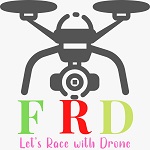In this digital age, the fusion of artificial intelligence (AI) and drone technology has revolutionized various industries, including the field of operations and logistics. This article explores the incredible potential of AI in drone operations, its benefits, applications, challenges, future trends, and ethical considerations.
The Role of Artificial Intelligence in Drone Operations
Artificial intelligence plays a crucial role in enhancing the capabilities of drones. By leveraging AI algorithms, drones can perform complex tasks autonomously, making them highly efficient and reducing the need for human intervention. AI enables drones to gather, process, and analyze vast amounts of data in real-time, allowing for smarter decision-making and improved operational efficiency.
Benefits of Artificial Intelligence in Drone Operations
- Increased Efficiency: AI-powered drones can complete tasks more quickly and accurately than traditional methods, leading to significant time and cost savings.
- Enhanced Safety: By utilizing AI algorithms, drones can detect and avoid obstacles, making them safer to operate in challenging environments.
- Improved Data Collection and Analysis: AI enables drones to collect and analyze data more effectively, providing valuable insights for various applications such as surveying, agriculture, and search and rescue missions.
- Scalability: AI allows for the coordination and collaboration of multiple drones, enabling them to work together seamlessly and accomplish complex missions efficiently.
Applications of Artificial Intelligence in Drone Operations
4.1. Aerial Surveillance and Security
AI-powered drones are extensively used for aerial surveillance and security purposes. With advanced computer vision and object recognition capabilities, drones can detect and track objects of interest, monitor critical infrastructure, and enhance situational awareness in real-time.
4.2. Precision Agriculture
In agriculture, AI-powered drones equipped with sensors and imaging technology can monitor crop health, detect pests or diseases, and optimize irrigation and fertilization processes. This data-driven approach enables farmers to make informed decisions, increase crop yields, and reduce resource wastage.
4.3. Infrastructure Inspection and Maintenance
Drones integrated with AI algorithms can inspect critical infrastructure such as bridges, power lines, and pipelines. They can detect structural issues, identify maintenance needs, and assess potential risks more efficiently than manual inspections, saving time and reducing operational costs.
4.4. Delivery and Logistics
The use of AI in drone delivery systems is gaining momentum. By leveraging AI algorithms for route optimization, obstacle detection, and package handling, drones can revolutionize the delivery and logistics industry by providing faster, more cost-effective, and environmentally friendly solutions.
Challenges and Limitations of Artificial Intelligence in Drone Operations
While AI in drone operations offers immense potential, several challenges and limitations need to be addressed. These include:
- Limited Battery Life: Drones have limited flight durations, requiring careful planning and consideration of battery life for extended operations.
- Regulatory Frameworks: The rapid advancement of AI and drones necessitates the development of robust regulations to ensure safe and responsible use, addressing concerns related to privacy, security, and airspace regulations.
- Weather Conditions: Adverse weather conditions can impact the performance of drones and their AI systems, posing challenges for operations in certain environments.
- Data Security and Privacy: The collection and processing of vast amounts of data raise concerns regarding data security and privacy. Proper measures must be implemented to safeguard sensitive information.
Future Trends in Artificial Intelligence and Drone Operations
The integration of AI and drone technology is an ever-evolving field. Some future trends include:
- Increased Autonomy: Advancements in AI will enable drones to operate with greater autonomy, making intelligent decisions and adapting to dynamic environments.
- Swarm Intelligence: The concept of swarm intelligence, where multiple drones collaborate and communicate to accomplish complex missions, holds immense potential for various applications.
- Edge Computing: With the rise of edge computing, AI processing can be performed onboard drones, reducing reliance on cloud computing and enabling real-time decision-making.
Ethical Considerations in Artificial Intelligence and Drone Operations
The use of AI in drone operations raises ethical considerations that need to be addressed. These include:
- Privacy and Surveillance: Balancing the benefits of aerial surveillance with individual privacy rights is crucial to ensure responsible and ethical use.
- Data Bias and Fairness: AI algorithms must be trained on diverse datasets to avoid biases and ensure fair decision-making.
- Human Supervision: Maintaining human oversight and control over AI-powered drones is essential to prevent potential harm and ensure accountability.
Conclusion
The integration of artificial intelligence in drone operations has transformed various industries by enabling autonomous and intelligent capabilities. The benefits of AI-powered drones are vast, ranging from increased operational efficiency and safety to improved data collection and analysis. However, challenges such as limited battery life, regulatory frameworks, and ethical considerations must be addressed to unlock the full potential of AI and drones.
FAQs
- Can AI-powered drones operate in adverse weather conditions?
- While adverse weather conditions can impact drone operations, advancements in AI algorithms and drone design are improving their ability to withstand and adapt to challenging environments.
- How are AI-powered drones used in precision agriculture?
- AI-powered drones equipped with sensors and imaging technology can monitor crop health, detect pests or diseases, and optimize irrigation and fertilization processes, enabling farmers to make data-driven decisions for improved crop yields.
- What role does AI play in drone delivery systems?
- AI algorithms are crucial in drone delivery systems for route optimization, obstacle detection, and package handling, enabling efficient and cost-effective delivery solutions.
- Are there any regulations for AI-powered drones?
- Yes, regulatory frameworks are being developed to ensure the safe and responsible use of AI-powered drones, addressing concerns related to privacy, security, and airspace regulations.
- How can AI and drones work together in swarm intelligence?
- Swarm intelligence involves multiple drones collaborating and communicating to accomplish complex missions, leveraging AI algorithms to coordinate their actions and achieve collective intelligence.
